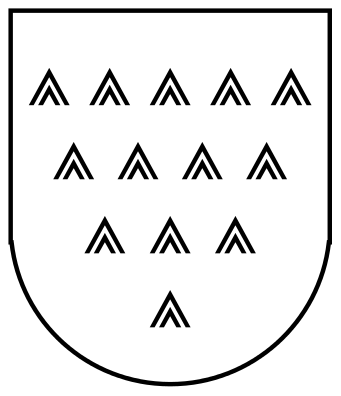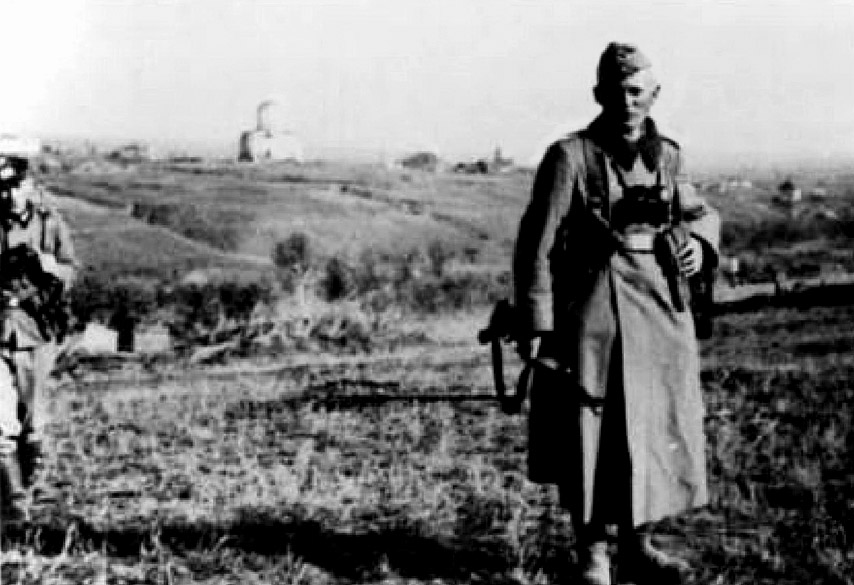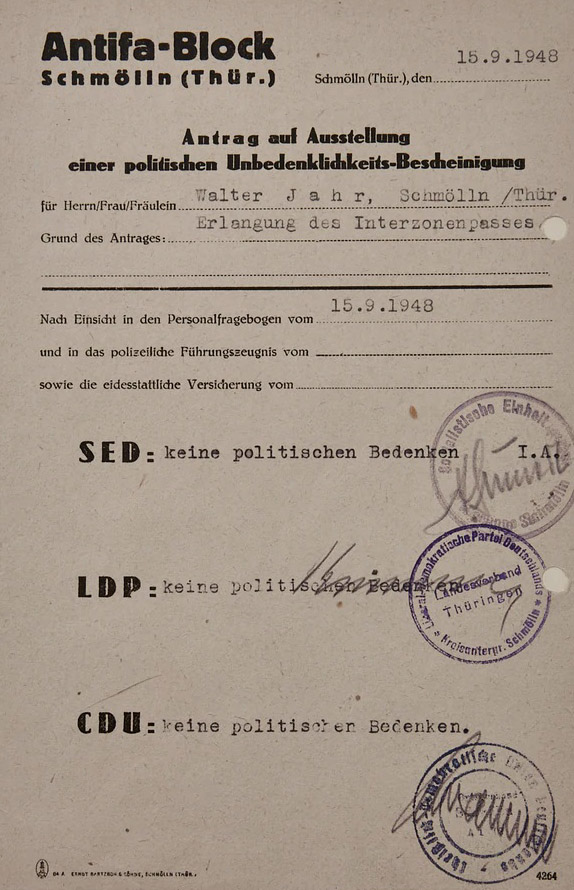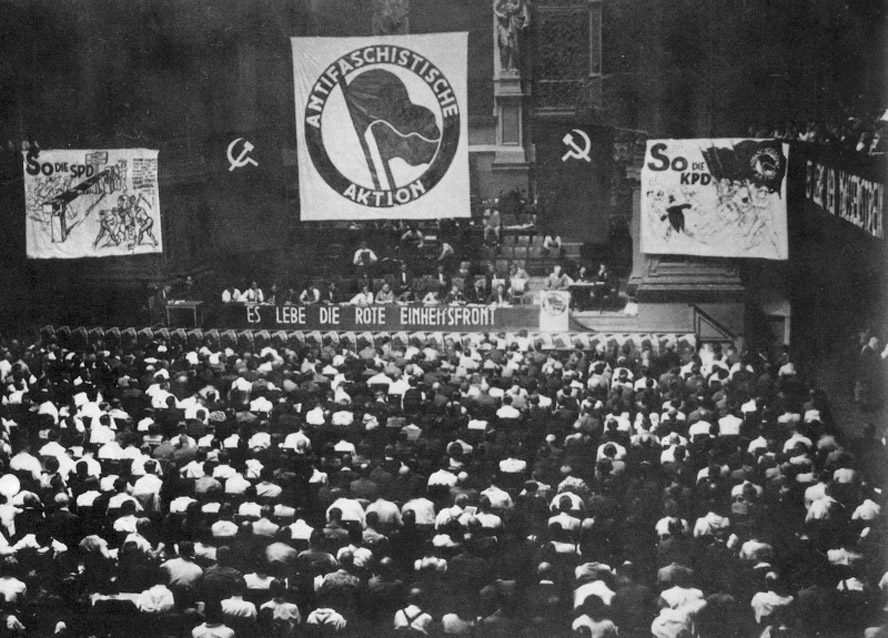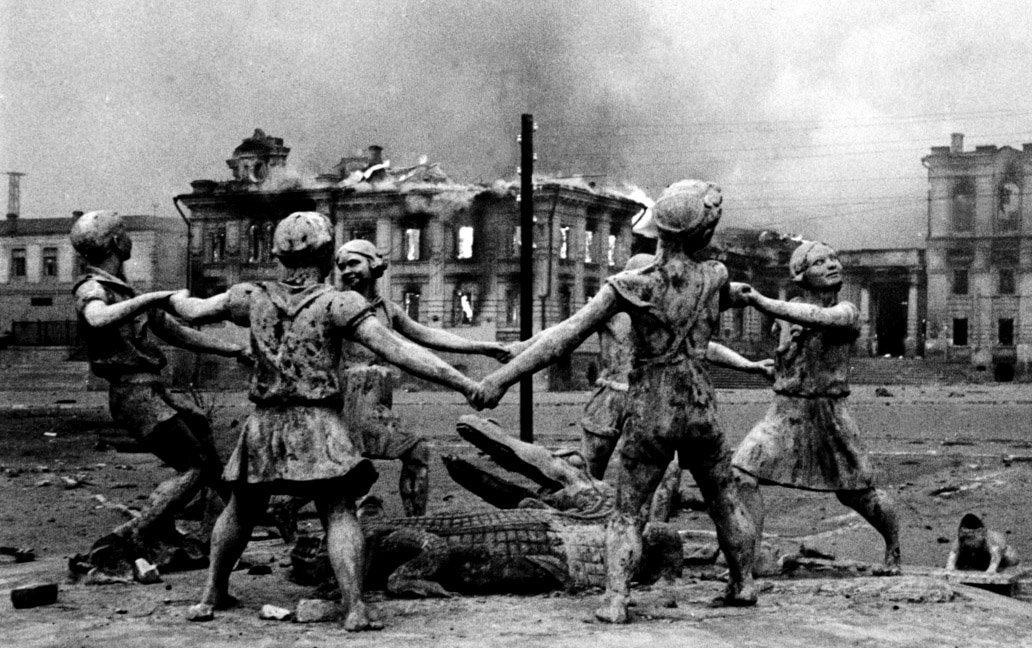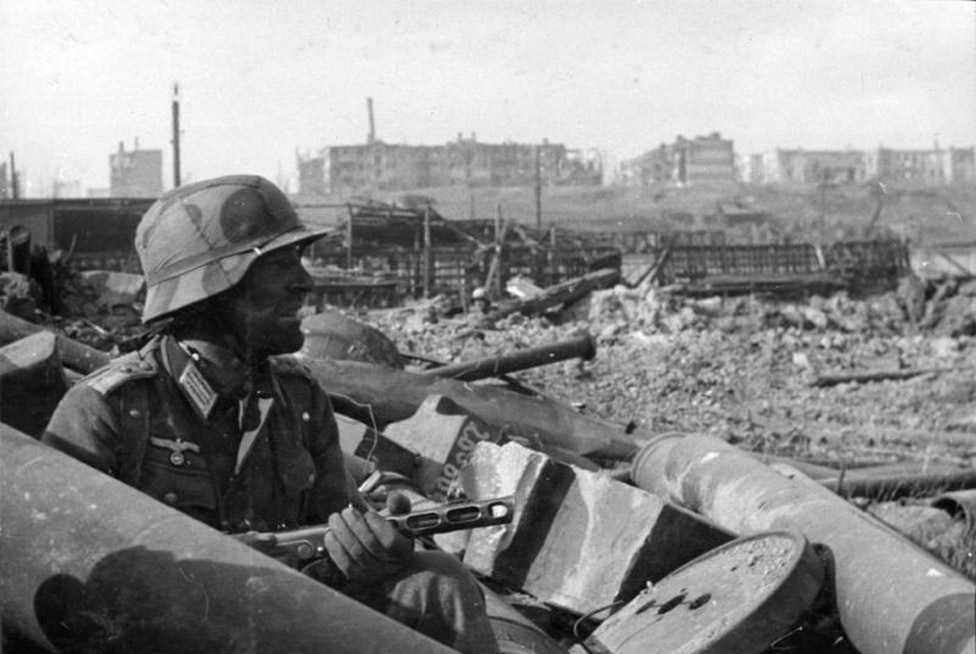Thank you for your time, I would like to start by asking why you chose to serve in the army?
Richard: It was simple; it was a new time in Germany that started in 1933. Things were still bad, and the recovery had not started yet. There was a fresh wave of patriotism that was sweeping the nation and the army was accepting those who wanted to serve. I wanted to gain experience, and it would give one respect.
I was accepted in1934 and after the training I was put into the reserves as an officer in a pioneer unit. This was due to my schooling. Like you, I chose to serve my country in the best way I knew how. We never dreamed it would turn out the way it did.
Can I ask what life was like during the Third Reich? Was it as bad as many say?
Richard: When you ask if it was bad, I think I understand. We lived in a nation that was going through some struggles in the 1920s and early 1930s. When Adolf Hitler came to power he turned things around for most all Germans. For those who owned businesses for example, they foundered under the slew of taxes the Weimar government imposed.
Under Hitler, taxes were redone and made very fair for everyone. It made it so you could grow the business more and hence hire, where the worker would then pay taxes to add to the whole. To say Germany experienced a rebirth after 1933 is an understatement in my mind.
Life for most Germans was very much improved; there was a renewed sense of worth and hope. Small businesses, farms, and even big businesses seemed to do very well and there were no complaints. I can tell you many Germans were leery of the Hitler government, as it was revolutionary.
He had no use for the old ways of monarchy, this scared and angered a few diehards. Europe as a whole was going through these pains. The communist answer was to kill off the royal houses and everyone in them. Hitler chose to work with them but to not give them power as before.
My family was close to some of the family of von Schulenburg and they seemed much taken in by Hitler, as many went to work in the ministries, SS, or Wehrmacht. I never heard a bad word about Hitler or anything the government was doing, except after the war.
After the war, when the Allies and Russians came, things changed and then everyone had something bad to say about Hitler. It was like you won a prize for the worst things you could say about it all.
Can I ask you how you feel about the accusations and the general feelings of Germans today regarding war crimes? And why do so many German veterans agree with them?
Richard: So now its war crimes then, okay I will try to explain. I was at the front, and can tell you I saw no crimes by German arms. The state of history today condemns all of us; they preach we tried to take over the world in a mad rush for living space, so we could kill all the non-Aryans.
This is insane, but so many people have come to believe it that it needs addressed. Personally I believe all the atrocity stories came from our enemies, who had special departments with the sole aim to make up or exaggerate stories of crimes, rape, torture, and overall mistreatment.
When the Allied victory was secured, they made it a point to wipe out any sentiment to Hitler.
They gave money for turning in anyone who was a Nazi, even to children turning in their parents. They put former communists into the schools to teach the children. As the older generation passed on, the younger had no idea what the truth was, parents could be arrested if they said anything different.
To start to fit into the new regime, or way of thinking, many Germans concocted fanciful stories to make themselves feel good and to throw off any suspicions of being a Nazi. You see this in made-up diaries, stories told to family and friends, and written accounts. They lied about their experiences and dishonored the true stories in an effort to conform to the will of the victors.
There is a saying I hear “the victor of a war gets to write the history” and the Second World War is a prime example of this. The victors worked very hard, and every anti-Hitler and German group came up with their version of events. Since they owned or controlled every media organization it made it easy to feed their lines to the people, who had no way to challenge or overturn these lies.
The post war denazification was brutal to say the least, the stories today are molded into tales to show a life that didn’t exist, and they always want one to see the Reich as bent on war and conquest, killing civilians and persecuting Jews and opponents, this is false. Jews either left or learned to be loyal, that was all that was asked. In some areas mass deportations did happen, just like in the Allied nations with people viewed as a foreign threat.
Hardline National Socialists wanted them all gone, since they were not Germans. [Julius] Streicher was very popular with some in the Reich, but his words were tempered with compassion and common decency that most Germans showed. I will say that the Jews in Germany did not help themselves much.
I paid attention to it all; everywhere you turned there was either a rich Jew in power, or a criminal Jew making a dishonest living. Hitler stopped this and thus incurred the wrath of Jews abroad. They tried to kill him a couple of times, but they always blame the communists.
My father ranted about a popular artist named J. Mandel from Paris, who was a Jew. He sold dirty pictures of young girls and got women to take nude provocative photos that were not meant to be art. He pushed viewing women as sexual idols to be taken advantage of and conquered in a evil way. My father would say this was to temp married men to ruin their marriage.
What about all the stories of Germans killing partisans and civilians, isn’t that a crime?
Richard: No it is not in most circumstances, it is war, and if a civilian takes up arms and gets caught, they can be punished. Let me tell you an example, one of many that is lied about. In the Polish city of Premissel, which was taken in 1939, it is claimed German forces murdered hundreds of Jews and Poles.
I knew a comrade from this town and I remember he was very proud of it. One day we saw an Allied flyer that was dropped during the war telling of crimes of the regime going on, which we knew to be false. He brought up that he saw killings in his town and how they were twisted by anti-Germans into a false crime.
He was there in the town in 1939 and told of the seething hatred against Jews who were accused of aiding Stalin, forgery, and other crimes. The Poles have never got along with Jews, and often attacked them. When war started and German forces approached the city, some civilians were armed by the Poles. They shot at, attacked, and killed some German forces and Jews.
After the Police investigated, they found out Polish civilians, and military in civilian clothes, had done this. It was even found that some Jews had participated, and then later became victims themselves. The guilty were sorted out and punished by firing squad. Many accused fled to the Soviet side, and if caught later they were likewise punished in the same way.
This comrade said the Poles blamed the Jews; the Jews blamed the Poles and they turned in each other. Many of the family members who hid or helped them were sent to camps or ghettos. There is no way this was any type of crime. It is indicative of the situations I believe we were forced into; attacks by rear area partisans that were punished were made into war crimes by the victors.
Our enemies take every opportunity to turn these incidents into crimes that in all truthfulness were nothing of the sort. The criminals were the ones who were punished who are now called victims and martyrs. These attacks were nothing new, the elders who were in the First World War reported the same things.
One story I remember was of Katharina Countess von Schulenburg, she was murdered by Belgium partisans in 1914. The family story was she detrained and was on her way to a field hospital, where she was attacked by Belgium partisans and killed during a bloody ambush.
This set up reprisals against the guilty to stop any further acts of terror, which the Allies aided and encouraged. It was the same in the Second World War, agents were sent in to arm and train civilians, then when they were caught and executed as spies, it is called a crime without equal today. The press is owned and controlled by those who have a political agenda and work against us and the truth.
You were on the Russian front, and in Stalingrad, can I ask what that was like?
Richard: I was late into the war, and came to the front in mid 1942. Before then I was in France on occupation duty. My first thoughts of Russia were how vast the country was, I remember seeing the burnt out wrecks and destruction. Stalin ordered the Red army to destroy everything to deny it to us.
The towns we entered were being repaired, and I saw collection points for destroyed enemy vehicles, hundreds of them to be sent to steel mills. It was a surreal vision what we all saw, for many completely new. A funny thing I will tell you, I saw Germans and Ukrainians working together to repair roads, buildings, bridges, and infrastructure. The press says we were there to enslave and kill the “inferior” Slavs, but all I saw was cooperation and friendship.
On all areas of the front, and even in France and Italy I saw nothing but compassion and friendship with the locals. In fact, in France my platoon saved a town when the flour mill caught on fire, we knocked down sheds to stop it from growing. The town’s people were very grateful.
The same in Russia, we aided the people any way we could. There was no race hated or bigotry. We knew we were the liberators and the people adapted to us, and we treated them fairly and gave help when needed. They had issues with food due to scorched earth, and we handed out bread, eggs, and soup to many of them.
Even the soldiers were decent in the beginning. I saw many prisoners that summer and they were grateful to be done with the war. Many came over to our side and fought on all fronts. Of course there were some who were bastards, but for the most part they were just men like us but who were forced to fight.
Stalingrad I do not like to speak of much, it was a hard fought battle that made inhuman demands on us all. Many good men fell in that city, and even more never came home from the abuses of the Soviets. What started out as a warm campaign, with much promise ended in disaster for us. It was lucky for me that I was sent on leave for health reasons, and not able to return to the pocket.
I was only on the east front for a short time, mostly around Stalingrad. I can attest to the extreme bravery of my comrades, and the determination of the Soviets. We lost many comrades trying to take mere houses from the enemy. The Soviets seemed to have unending reserves of men and ammunition.
I remember we were always short of both, on some days our artillery could not support us, and Panzers sat idle. We were forced to use Soviet equipment and weapons many times as the ammunition was plentiful. For food, we had to not only feed ourselves but we had prisoners and civilians to care for.
The Soviets bombed a camp we had for POWs, killing many, and a friend of mine died too. I felt sorry for the civilians, and we pushed them off to the west as best we could but many refused to leave the city. They ate what they could, even sharing with our men at times. The Soviets tell these stories that we starved, shelled, and killed the civilians, but this is utter shit. I saw them shoot their own men who were trying to surrender to us, or who we released as we could not care for them. Utter insanity.
What happened after Stalingrad?
Richard: As I say I was sent home on a convalescence leave as I was in bad shape from my stomach and bowels. When I returned to the front I was not able to return to my unit and was put into an alarm company to try to relieve the pocket. We ended up fighting off attacks and the cold more than anything else. After the fall of the pocket, I was sent home again and then sent back to France to help reform Pi Btl 305.
During this time in France we reformed our shattered unit and healed ourselves. From here I was sent to Italy, with even better weather so that it was like a long vacation. The unit was sent to the Cassino front where we fought Americans for the first time. I won my Iron Cross for stopping their advance.
After this I was sent to France on the Allied invasion front, and was confident our men would hold them until I saw the defenses there. It was as if nothing had been done at all to prepare. I will tell you we had many eastern soldiers, from Poles, Ukrainians, Russians, Georgians, and Muslims who only wanted to fight Stalin.
All the good German units were held back far from the landing zones, and so had no ability to stop them. The air power the Allies had was truly astounding to me; they were so brazen they would fly solo missions without any challenges. The Luftwaffe had been pulled out to protect the cities, and moved to the east.
Rarely did we ever see our own planes in the air, lack of fuel, planes, and pilots were the reason I have been told. They way I see it the Allies had a pretty easy go of it on the beaches and then ran into better units who stopped them. The air power and supply situation doomed us. They brought supplies and reinforcements up with ease, while we struggled for both.
I was placed on army corps staff and retreated into the Reich's borders. We fought the Americans in delaying actions hoping to buy time for the new weapons. I was taken prisoner in the Ruhr pocket, so that was the end of the war for me.
Can I ask how you were treated after surrendering?
Richard: I surrendered to the Americans, and was appalled at the treatment. We fought an honorable war, and treated American prisoners with dignity and respect. The first act I endured was the ripping off and looting of any medals or awards. I saw men punched, slapped, and kicked for being slow with this.
It was like being captured by robbers and highwaymen. I was told one soldier was killed for refusing to hand over his Iron Cross, and there was a body of a Luftwaffe man in a field. They threw any food we had on the ground, and emptied our water flasks. We felt violated and humiliated, but I will tell you the worst was still to come.
We were kept in open air enclosures in France, where rear area French partisans were in charge. They routinely beat and insulted the men; I saw one push a sick man into a latrine ditch. Lucky for him it rained and he was able to clean himself off as best he could. After a few weeks we were moved back to the Reich, in the Rhine camps.
There was hardly any food or water. Lucky for us it rained and we were able to collect rain water to drink. Some men drank out of puddles to get needed water to survive. Of course sickness was the result with many men dying in the open.
There was nothing we could do, as an officer I went with others to complain, but was met with disdain, threats, and hate. This made no sense to us at all. They also started showing photos of the camps to us, which seemed to only inflame them more. They had no care if one or 100 died in the camp, to them we were just animals.
Then I understood, the propaganda war had caused them to hate us without really asking if we had any part in it, to them we were all the same, and equally guilty. We had a man in our camp that was very vocal that this was a lie and enemy propaganda. He was turned in by someone and removed, we never saw him again.
More and more men died in our camp, five thousand I would say, from starvation and the issues caused by malnourishment. There were some people who came at night and threw bread, and cans of food they got a hold of, we were orderly and shared as best as possible. These times did bring out the worst in people. Some tried to steal and hoard, which was punished.
The guards knew this was happening and to their credit most ignored it, some even slipped cigarettes and food when they could. It was just enough to keep the healthy alive, I lost many pounds during that summer. In the fall they started to farm us out to other camps for work details, and we were fed much better.
It has been spoken that countless soldiers died during the spring and summer in these camps. I would tend to agree with every word, I saw it, lived it, and survived it. I was finally allowed to return home to my displaced family who had been kicked out of our home and forced to fend for themselves. The occupation was not kind to most Germans who had served their nation in a time of war.
That is why I say many Germans turned on their old beliefs; they did this in order to survive under the new order. They would denounce all military men, and rush to the occupying body when a soldier returned home so they could be investigated, instead of being left alone.
For me life slowly returned to a sense of normal, I had my Lotte, daughters, and comrades. I have been working since to make sure our men are remembered for their sacrifice and duty.

